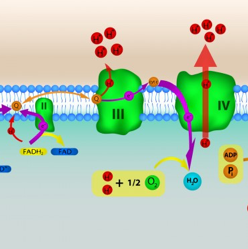 What is PQQ?
What is PQQ?
What is PQQ? PQQ is short for pyrroloquinolone quinone. Now you know why PQQ is used instead. PQQ is a compound that some scientists feel should be categorized as an essential nutrient. Essential nutrients are those the body is unable to make on its own and thus depends on the diet for obtaining some nutrients.
Why is PQQ Important?
PQQ does something very special. It enhances the production of new mitochondria. We’ve written about mitochondria in this post. Towards the end of that article is a discussion on five nutritional supplements that protect mitochondria. But protection is not the same as enhancing the production of new mitochondria and the production of new mitochondria is what separates PQQ from other nutrients.
What are Mitochondria?
Mitochondria are the organelles in the cell that make ATP, the energy source the body utilizes to power itself including thinking. Mitochondria are unique in that they are able to divide on their own with cell division. This process is called mitochondrial biogenesis.
Intense exercise is a stimulation for mitochondrial biogenesis as is calorie restriction.
As we age our mitochondria become less in number and also become less functional. Thus, our ability to be energetic lessens and we find ourselves doing less and less as we age more and more. So anything that improves mitochondrial biogenesis is likely to improve our qualities of life.
PQQ does more than stimulate mitochondrial production. It decreases inflammation markers including C-reactive protein and interleukin-6.
Aging and PQQ
PQQ is a robust stimulator of mitochondria production. By its ability to stimulate the production of mitochondria PQQ may slow the aging process. In this study participants given PQQ showed increased mitochondrial function in 48 hours.
The biggest potential area of impact may be on the central nervous system. The brain is the most metabolically active organ we have consuming the most oxygen and receiving the most blood flow for its size.
PQQ and the Brain
PQQ has shown benefits in patients with neurodegenerative diseases (Alzheimer’s and Parkinson’s), stroke victims, and looks promising in patients recovering from traumatic brain injury based on animal studies.
A key to preventing neurodegenerative diseases is mitochondria biogenesis. In this study elderly participants were given 20 mg of PQQ daily for 12 weeks. Those given PQQ showed significant improvements in attention and working memory with increased blood flow to the frontal lobes.
Other studies have shown that PQQ prevents the accumulation of beta-amyloid and alpha-synuclein which are associated with Alzheimer’s and Parkinson’s.

In animal studies, PQQ reduced the ischemic (lack of blood flow) damage that occurred. Improved neurobehavioral has been demonstrated following the use of PQQ in animals following stroke.
Similar findings have been found in an animal subject to traumatic brain injury that has been treated with PQQ. This neuroprotective effect of PQQ following traumatic brain injury has been seen following the trauma of the peripheral nerves as well.
What Foods Are High in PQQ
To boost your PQQ levels consume the following foods that have the highest PQQ content:
- Natto
- Parsley
- Green Pepper
- Kiwi
- Papaya
- Spinach
- Fava Bean
- Carrot
- Miso
- Potato
- Sweet Potato
- Cabbage
- Banana
- Tomato
- Egg Yolk
- Orange
- Celery
Of interest, PQQ is synthesized in some of the earth’s simplest and oldest organisms leading some scientists to believe that PQQ was a key to the formation of life on earth.
What is the Dose of PQQ
Human studies have been performed using 20 mg of PQQ daily and most PQQ supplements that we have seen come in a 20 mg a dose.
